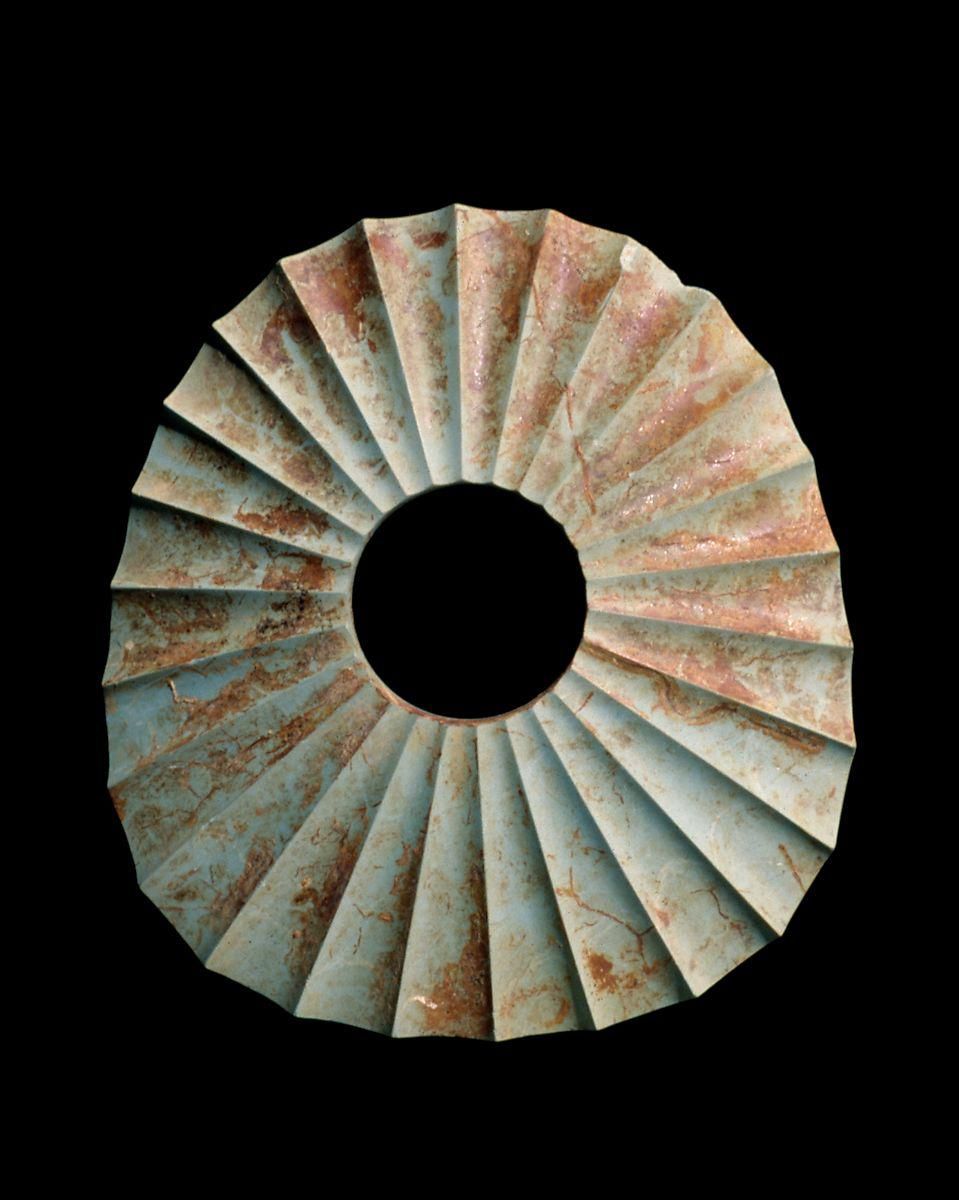
Carriage-wheel stone bracelet (sharinseki)
Unknown Artist
This irregular disk with smooth radial fluting is a fine example of a type of carved stone object found in the keyhole-shaped burial mounds of central Japan from the fourth and fifth centuries. Works in this shape are called sharinseki (carriage-wheel stones) and are sometimes identified as stone bracelets. They seem, however, to be talismans with magical or religious significance. They do not appear in burials of the later Kofun period; perhaps their special meaning faded with the influx of Chinese and subsequently Buddhist culture that began in the sixth century.
Credit: The Harry G. C. Packard Collection of Asian Art, Gift of Harry G. C. Packard, and Purchase, Fletcher, Rogers, Harris Brisbane Dick, and Louis V. Bell Funds, Joseph Pulitzer Bequest, and The Annenberg Fund Inc. Gift, 1975
4th century
Carved green tuff
21.6 cm
1975.268.388
Image and text © Metropolitan Museum of Art, 2019
Where you'll find this

Permanent collection
